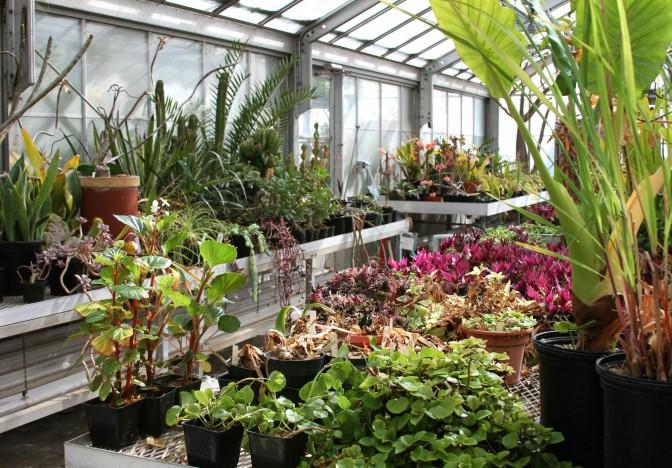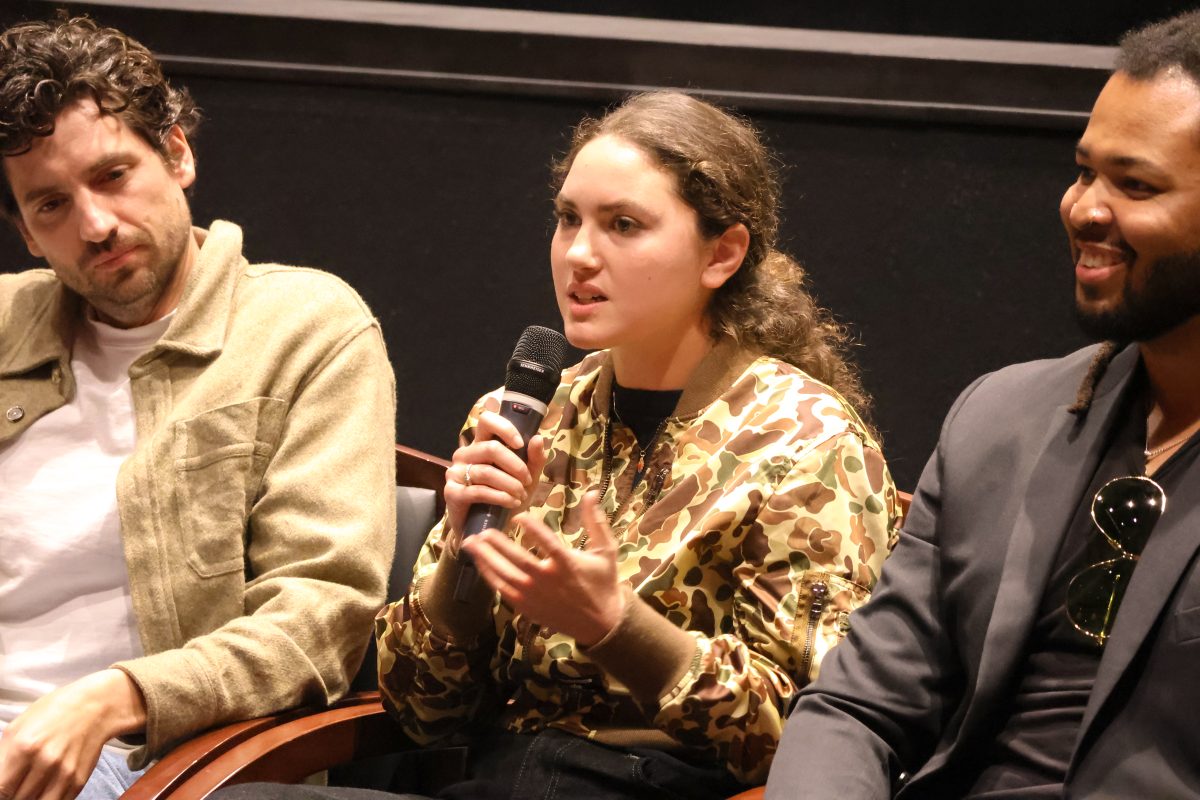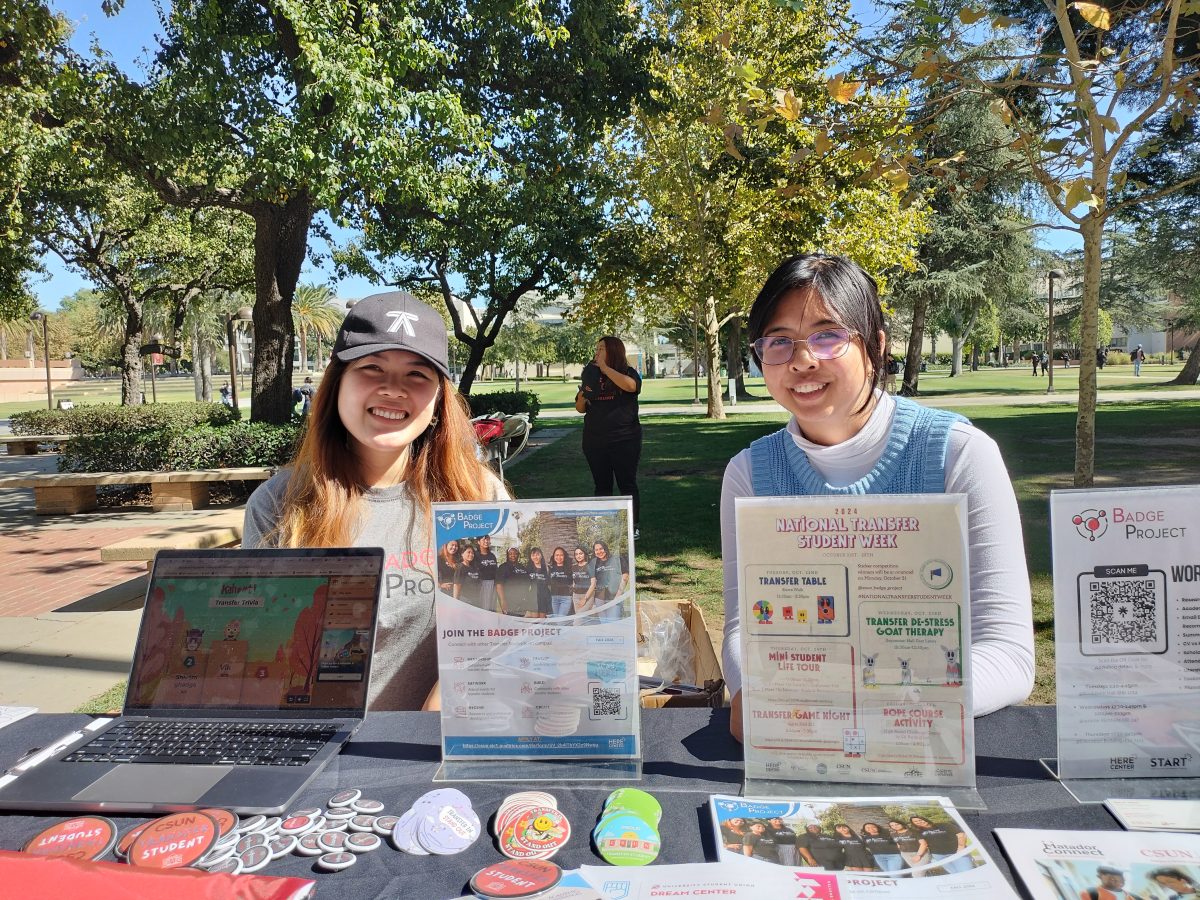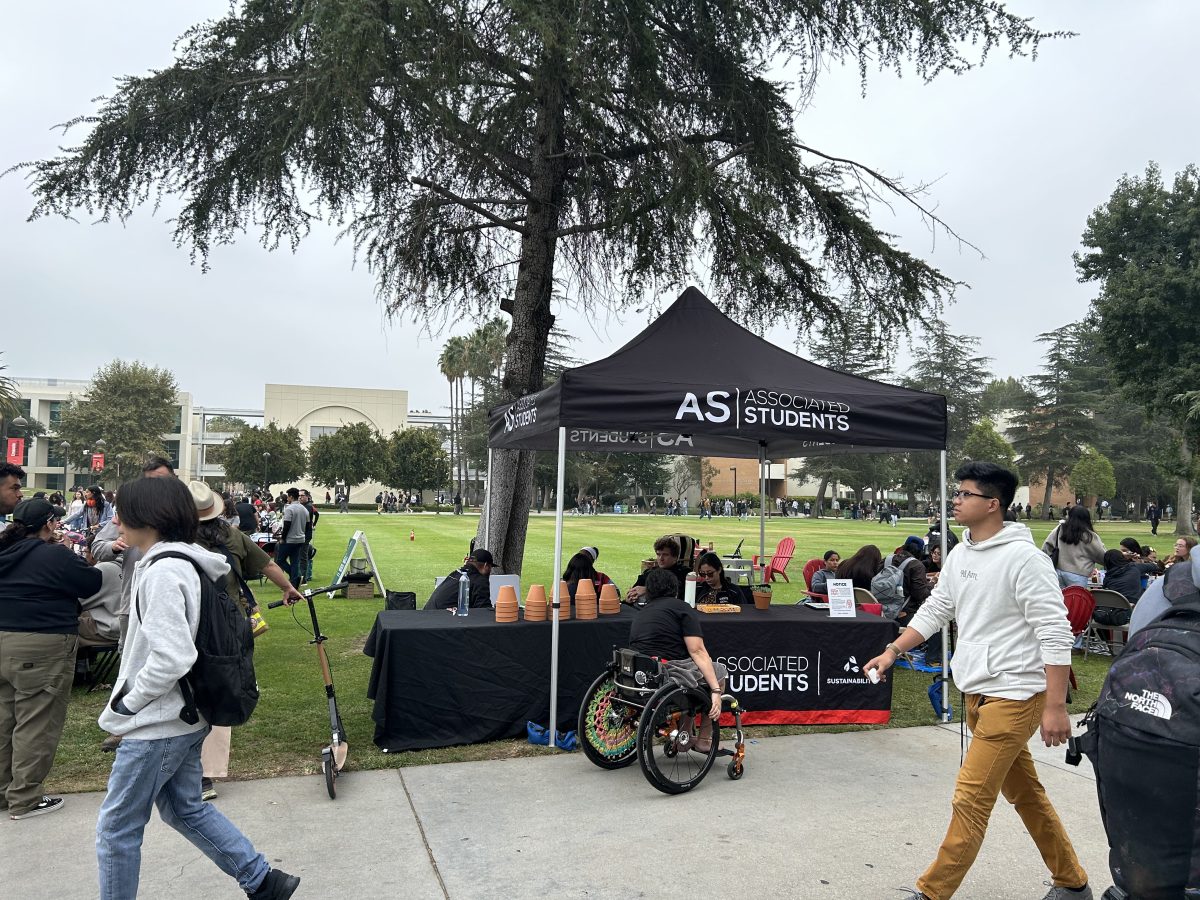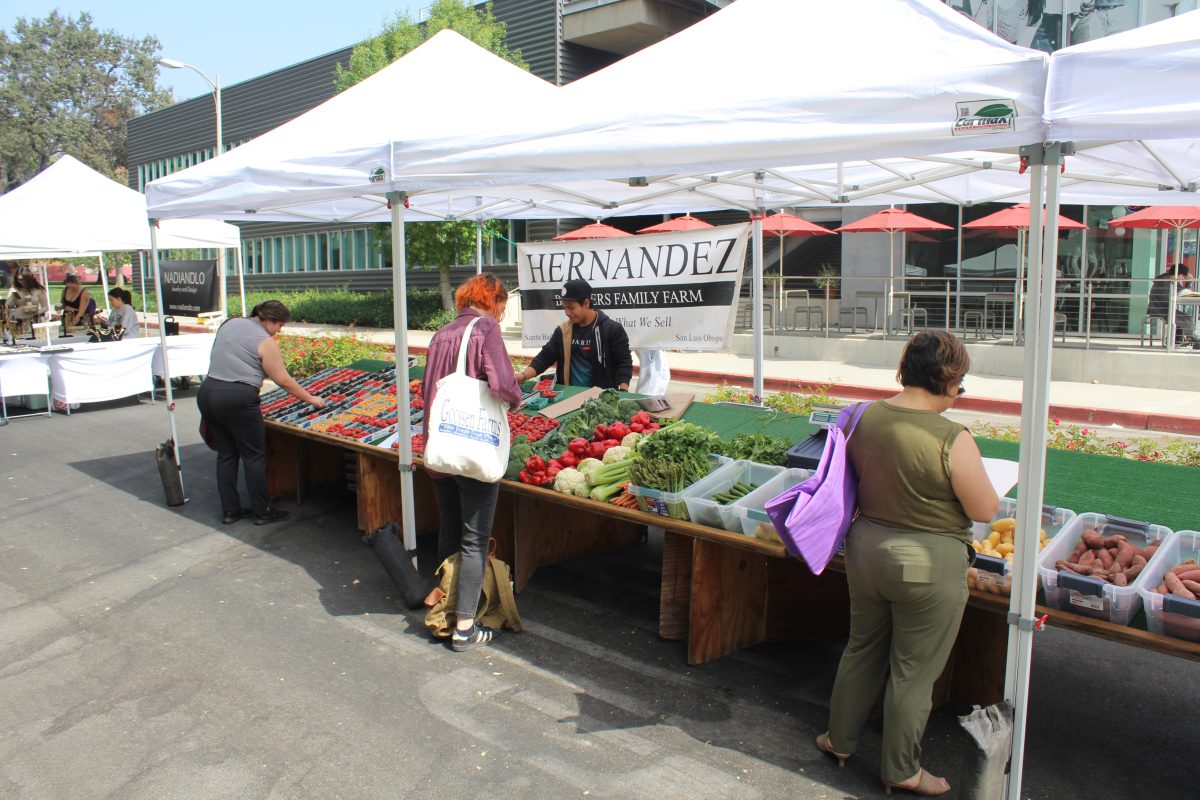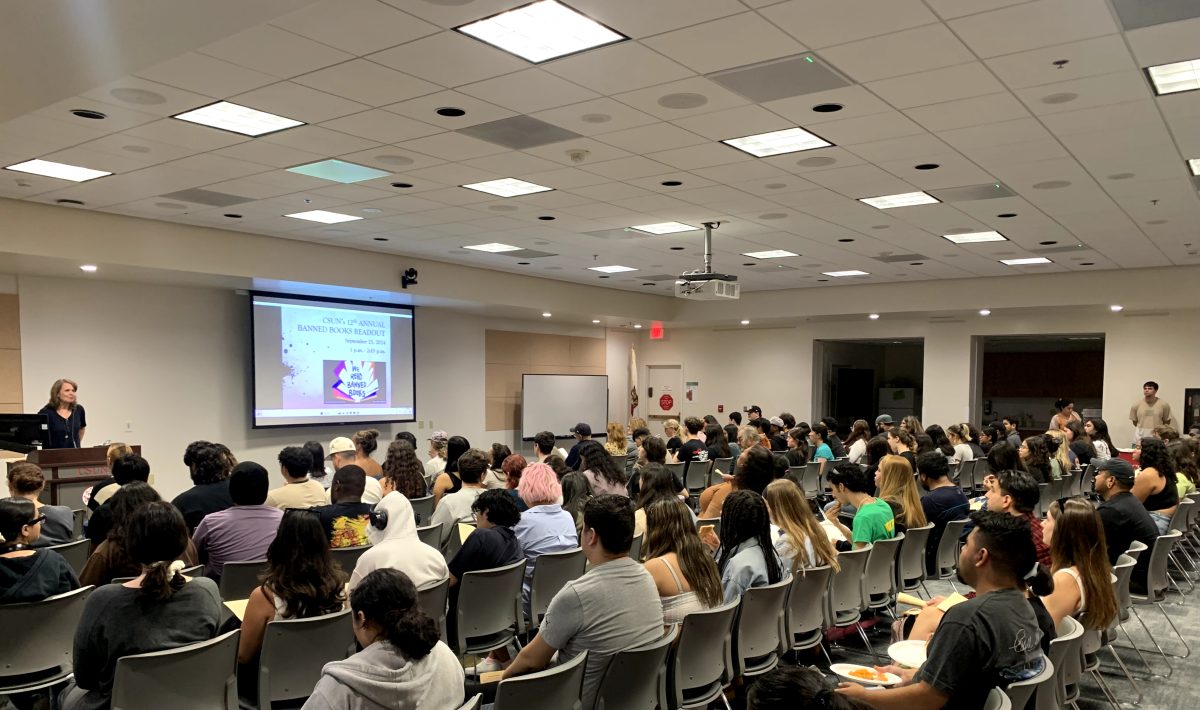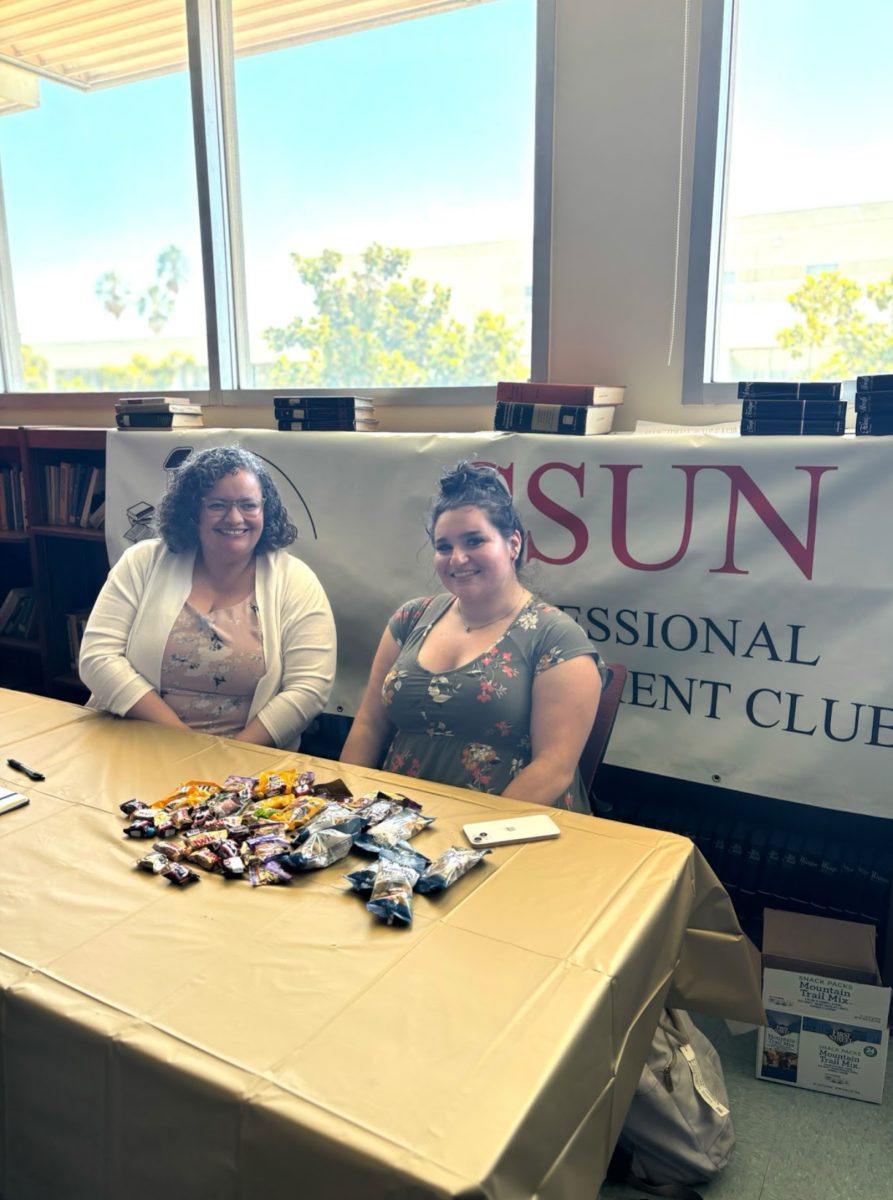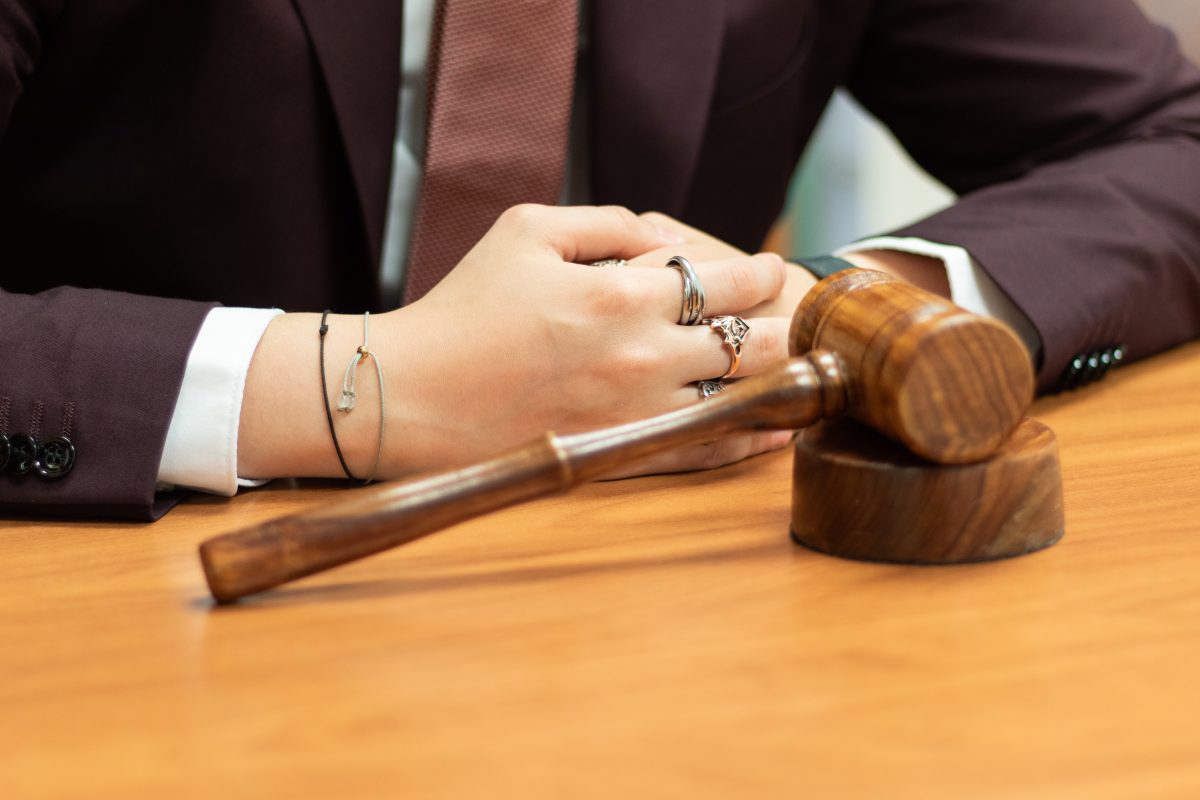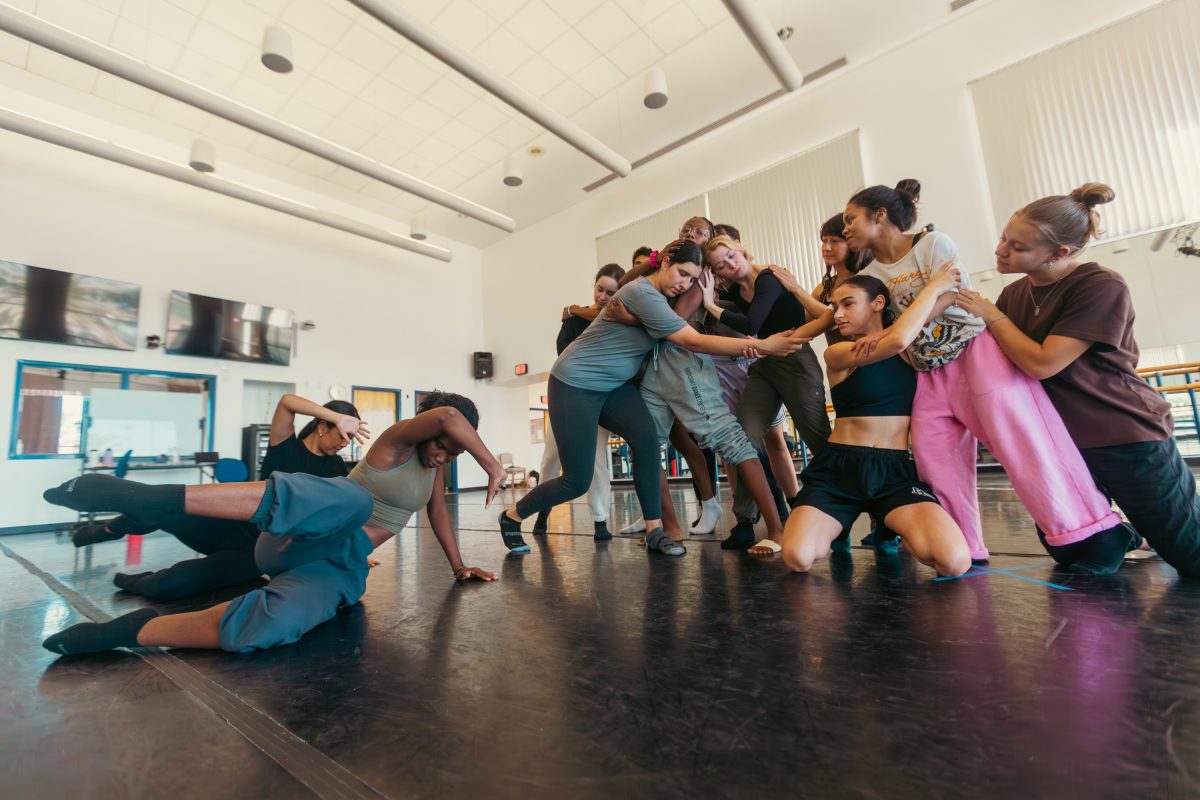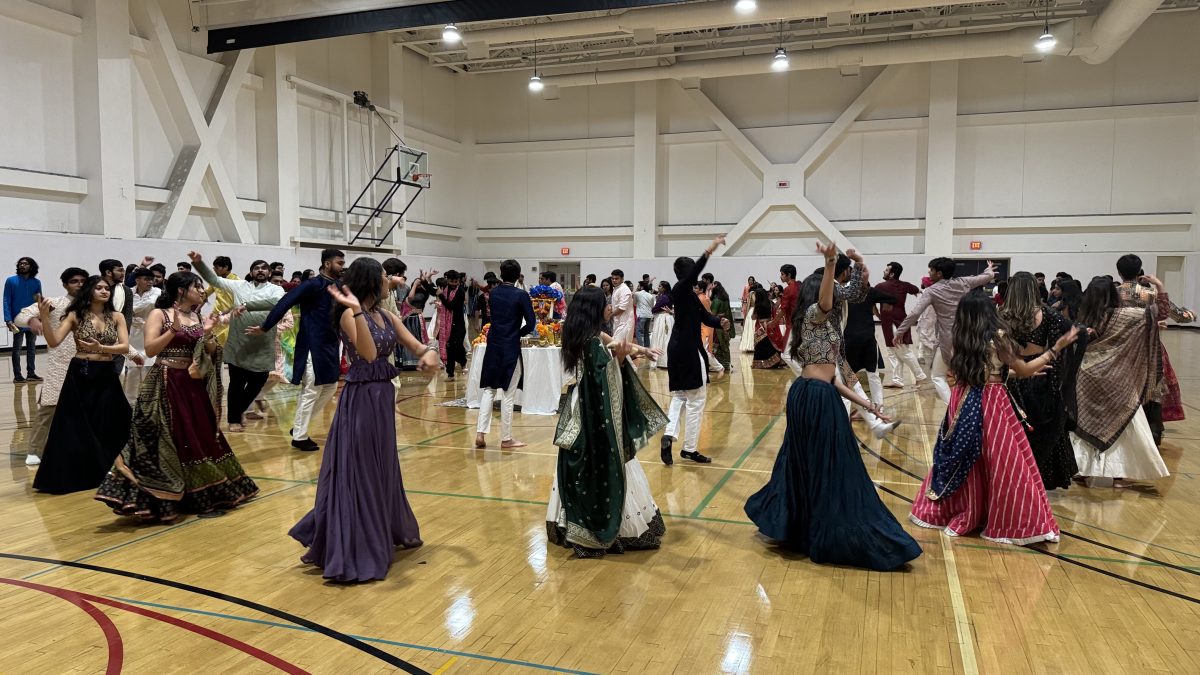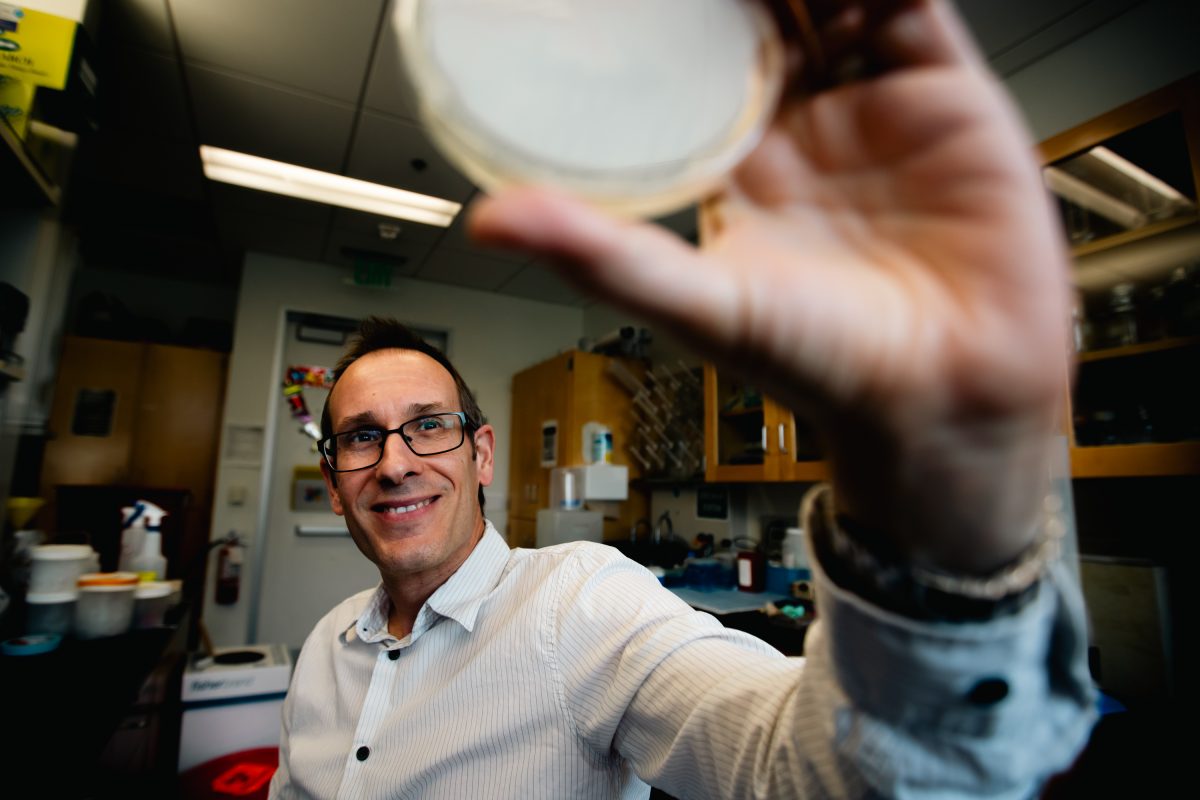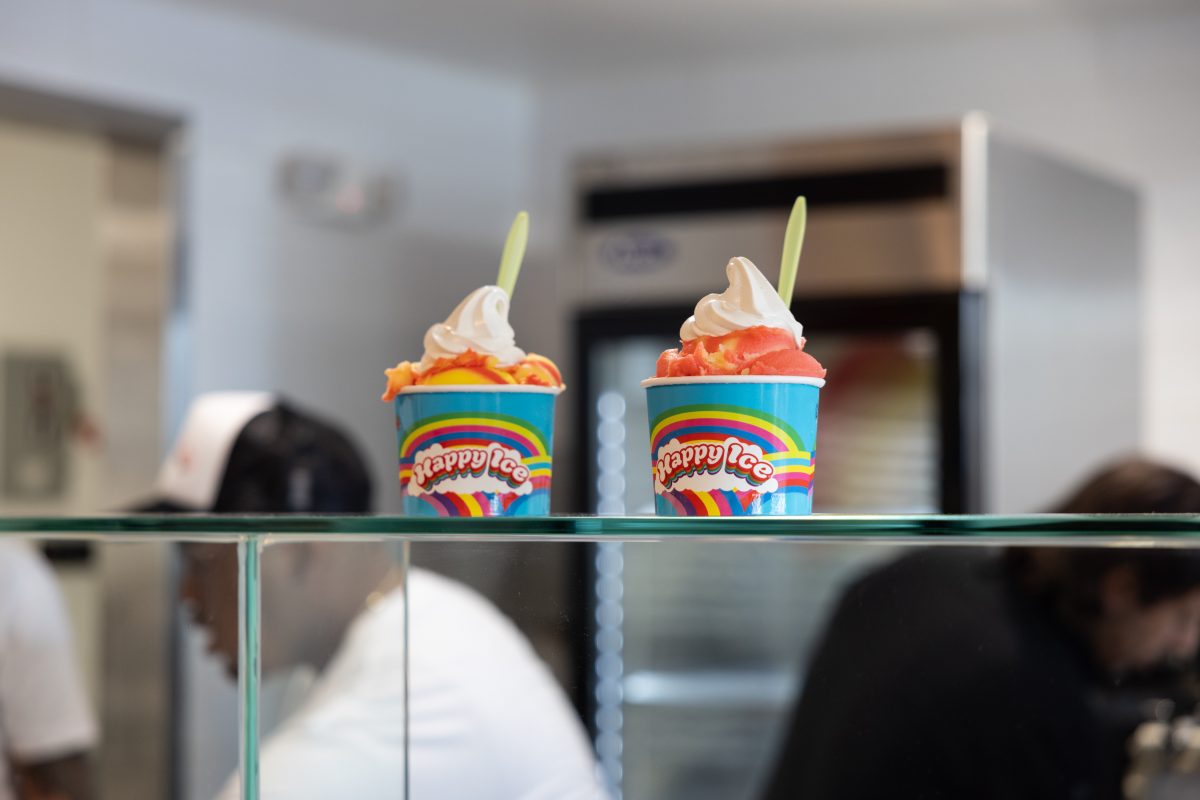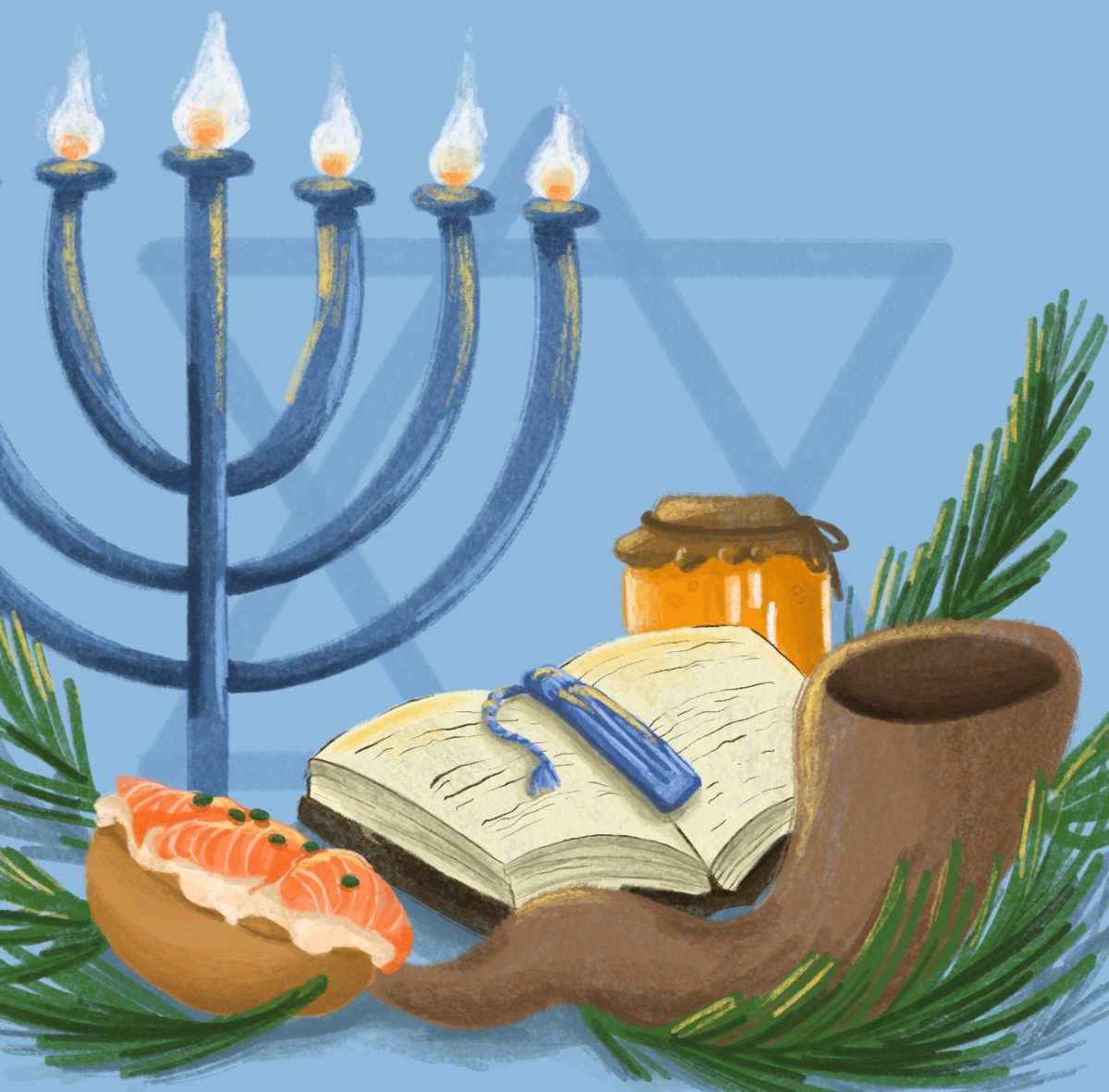Students and faculty gathered on Tuesday to learn more about campus sustainability and how be environmentally friendly in their daily lives.
The seventh annual Campus Sustainability Day took place in CSUN’s University Student Union and three lecture sessions ran throughout the day. Professors talked about sustainability with a “Building Resilience” theme.
The sustainability department works with other campus departments to ensure the community is being environmentally green. They have resources on their website for water, energy, transportation and other conservation impacted areas within the university. The group hopes to extend these plans to help the community.
The free event encouraged professors to bring their classes in for the lectures. Students made up most of the audience and took notes during the lecture.
The first speaker of the event was psychology professor Erica Wohldmann with her lecture about “Making a Difference, One Bite at a Time.” She discussed how food choices impact the environment.
Wohldmann introduced her idea, “every time you lift your fork, or spoon, or hand if you eat with your hands, you’re voting.” Wohldmann stressed the importance of knowing where your food comes from because of the chemicals and antibiotics that go into food and water.
She has traveled over 16 states. At the event, Wohldmann spoke about the six months she spent in the wild and while traveling she foraged for her own food, learned how to cook over camp stoves and campfires. She make bread out of almonds and her own beer.
The audience asked Wohldmann about what was needed to change and how people could petition for more organic friendly markets in low-income areas. Wohldmann had answers for all and left the audience with the parting thought, “Think – that’s the biggest impact you can make.”
Another speaker, Geology Professor Mario Giraldo, lectured on “Urban Agriculture and the Sustainable City.” Giraldo is one of the coordinators of the compost program and the campus garden.
Giraldo said community gardens are an important aspect of United States history, with 40 percent of food coming from these gardens during WWI.
The composting happens with the processing of pre-consumer waste, which becomes fertilizer and then becomes food. This cycle perpetuates itself and is an example of sustainability, which Giraldo defines as “persevering resources we have for future generations.”
Devon Mendez, a senior ecology and evolutionary biology major, attended the event with her class global perspective of environmental health.
“I knew most of the topics since that’s what the class is about. But I did learn some extra details,” Mendez said.
According to Lindsay Beg, a senior communications major and current student chair of sustainability, anyone interested in sustainability can learn more by joining The Sustainability Committee.
